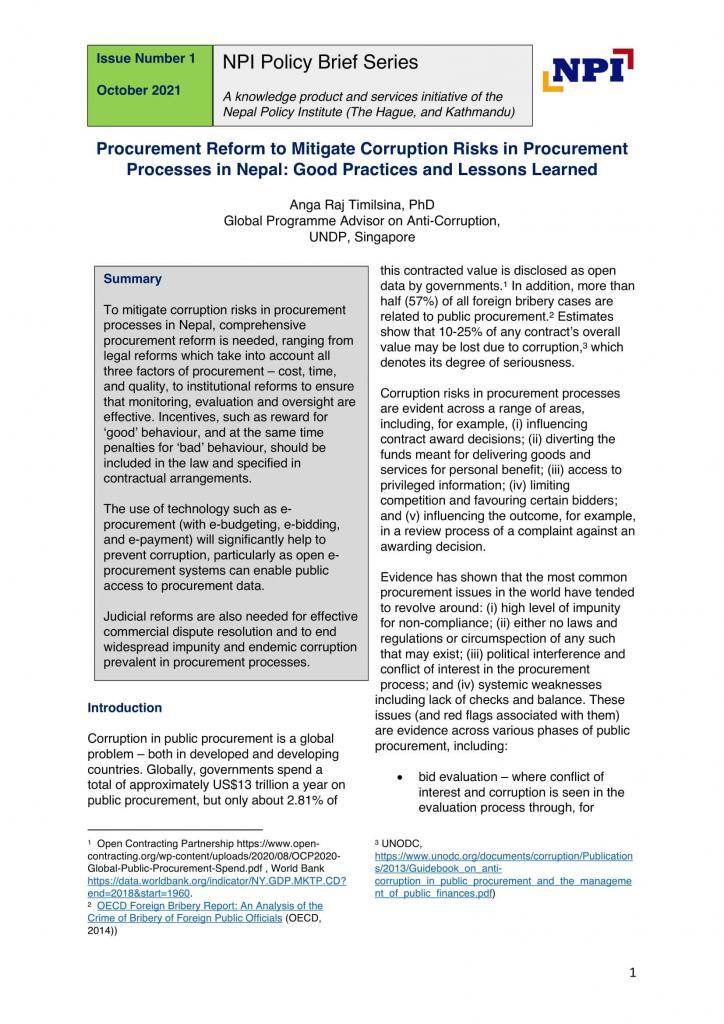To mitigate corruption risks in procurement processes in Nepal, comprehensive procurement reform is needed, ranging from legal reforms which take into account all three factors of procurement – cost, time, and quality, to institutional reforms to ensure that monitoring, evaluation and oversight are effective. Incentives, such as reward for ‘good’ behaviour , and at the same time penalties for ‘bad’ behaviour, should be included in the law and specified in contractual arrangements.
The use of technology such as e-procurement (with e-budgeting, e-bidding, and e-payment) will significantly help to prevent corruption, particularly as open e-procurement systems can enable public access to procurement data.
Judicial reforms are also needed for effective commercial dispute resolution and to end widespread impunity and endemic corruption prevalent in procurement processes.
Document Type: Policy Brief
Access: Open
Country: Nepal
Keywords: NPI, policy, corruption, procurement, reform, e-budgeting, e-bidding, e-payment, contract size, access to information, Open Data Index, risk factors
Citation: Timilsina, A. R. (2021). Procurement Reform to Mitigate Corruption Risks in Procurement Processes in Nepal: Good Practices and Lessons Learned. NPI Policy Briefs, No 1, The Hague: Nepal Policy Institute. https://

